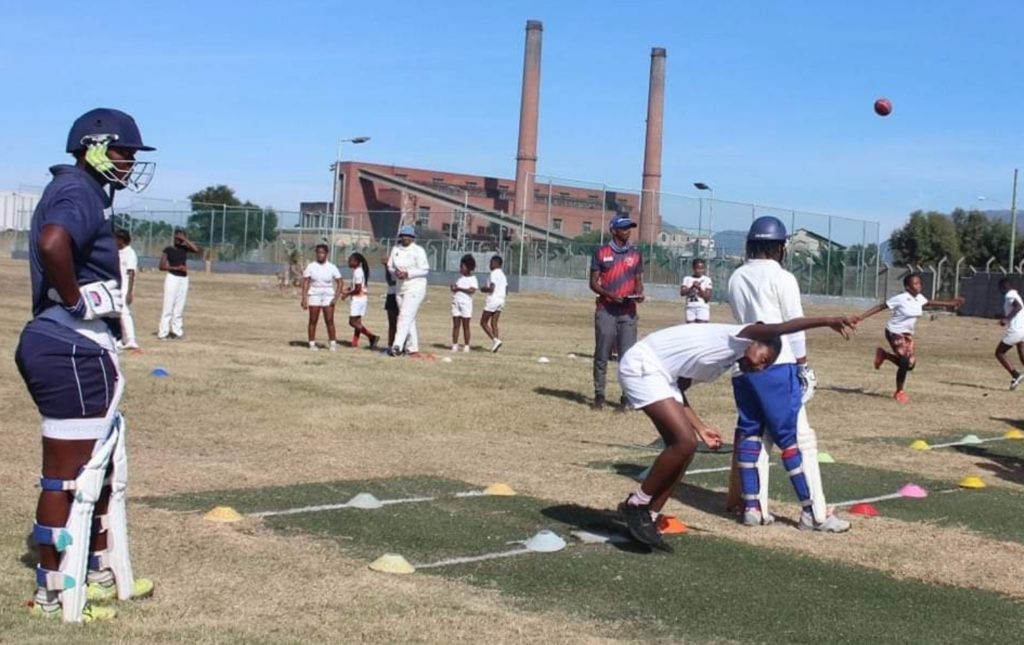Quinton de Kock delivered what felt like a sincere apology for his stance on taking the knee. Now we’ve got to move past taking a knee, and South Africa must lead, writes RYAN VREDE.
And, just like that, all is well. Well, kind of.
I was baffled by bits of De Kock’s apology, most notably when he said: “If me taking a knee helps to educate others, and makes the lives of others better, I am more than happy to do so.”
I struggle to understand how, in nearly 18 months of various athletes globally taking the knee in support of the Black Lives Matter movement, De Kock only now realises the power of the gesture.
This stance contradicts the seemingly petulant reason he gave for not kneeling. “I felt like my rights were taken away when I was told what we had to do in the way that we were told.”
De Kock wasn’t being a racist, he asserts. But he was being immature. I can accept that. I’ve been petulant in situations that required emotional maturity. Often. If you’re honest with yourself, you have too.
Personally, I’ve drawn a line under the issue. Yet, everyone must take up a posture that aligns with their convictions.
I wrote on Wednesday that the movement, and indeed any social justice movement rooted in the quest for racial equality, doesn’t need the support or co-signing of whites for it to have legitimacy or power. This doesn’t mean such support is meaningless and, in this context, I’m pleased De Kock will take the knee for the remainder of the World Cup.
But a knee is no longer enough, not for De Kock, nor for any South African professional player. Certainly, Cricket South Africa can no longer seek to score cheap political points by forcing its players to kneel when it has done the bare minimum to help create the quest for equal opportunities for blacks that underpins the movement. CSA must lead on activating change at the levels of the game where change is so desperately needed.
Its grassroots development programmes are a shambles. They are not a priority, which is reflected in the fruit of CSA’s neglect. The vast majority of black African, coloured or Indian players that come into the professional ranks do so through the elite school system. The schools are heavily resourced, and provide the structures gifted black players need to develop. This is not sustainable.
Cricket in grassroots clubs and schools are dying. For example, two weeks ago in Cape Town, Langa Cricket Club, home club of Proteas white-ball skipper Temba Bavuma, asked to withdraw all their senior teams from the league because of inadequate player numbers. Indeed, the majority of black and coloured clubs in leagues across the country have seen their player numbers dwindle and are struggling to field as many teams as they once did. Cricket is an expensive game to play, and cricket clubs are costly to run. When those expenses are combined and the situation compounded by the myriad debilitating effects of the pandemic, it is no surprise that the game at grassroots level is dying.
But there is no shortage of gifted players at these clubs. In 35 years of playing club cricket, I’ve often caught myself marveling at the gifts some teammates and opponents possessed and, more times than I care to remember, found myself lamenting the fact their gifts would never reach a professional stage. I’ve also encountered a clutch of incredibly (naturally) gifted coaches who, too, never progressed beyond that point.
This is rooted in leadership deficiencies at a governance level. You can’t force a team to take a knee in solidarity with a social justice movement that calls for equal opportunities for black cricketers, while you do almost nothing to help the cause you force your elite players to bring awareness to.
This is not a criticism of the symbolism, which I think is powerful. But symbolism alone doesn’t change much. Action is required for the symbolism to mean something.
CSA claims it has a comprehensive development plan at grassroots level. It rolls mini cricketers out at breaks in Test matches to uphold the perception. Yet, on the ground, clubs and schools struggle with the most basic needs.
Coaches in the development structures across the country are often underqualified and/or underresourced. Facilities are a mess in most of these communities. Yet, there remains a deep appetite for the game. And, if you build it, they will come.
CSA has a mandate to fix this. Yet, it seems more concerned about the perception of supporting social justice movements than doing the work it takes to realise the vision of these movements. It mattered more that De Kock took the knee, than it does that CSA met a desperate need.
The potential exists for South African cricket to lead the way in moving beyond the symbolism. We can be a world leader if we do the work required to create equal opportunities in the game.
It will require leadership with the intelligence, will and stamina this project demands, but the incentive is powerful insomuch as it will create a sustainable flow of elite black cricketers into the professional ranks.
Kneeling is good. Finding solutions to the problems that make athletes kneel is infinitely better.







